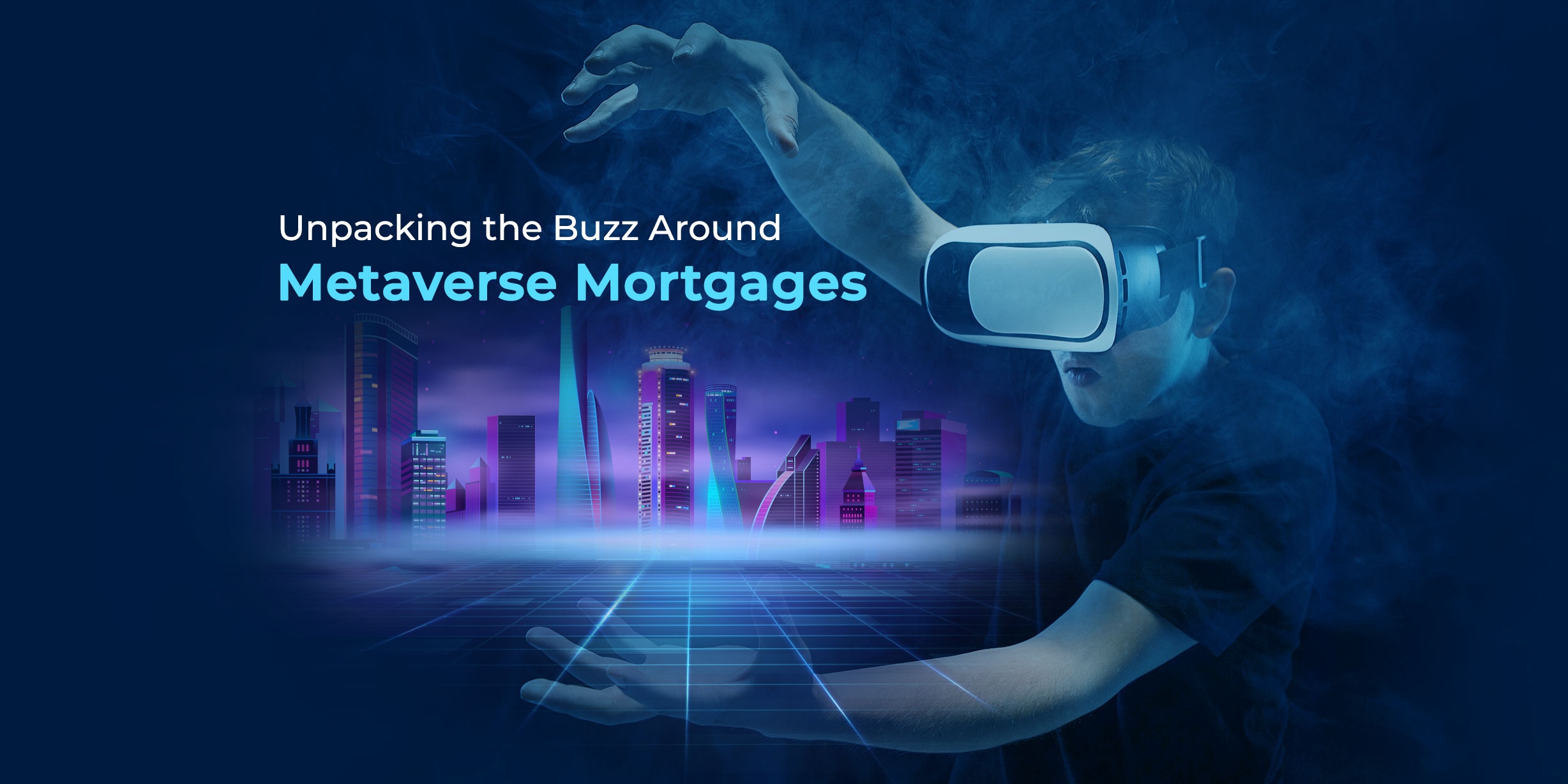The metaverse has the potential to transform property and ownership rules for good. It implies that digital real estate is just as valuable as physical land, and buyers can consider metaverse property as a long-term investment. To fund property transactions in the metaverse, lenders are now looking to provide cryptocurrency loans in the form of “metaverse mortgages.” This could very well be the next leap in the industry’s digital transformation, but are incumbent lenders prepared? For now, it is digital-native players making the early moves.
Understanding How the Metaverse Operates
The metaverse is a unified virtual world powered by cryptocurrency, blockchain, 3D modeling and visualizations, and virtual reality (VR) experiences. Users can leverage VR tools to enter and inhabit the metaverse and participate in the world’s decentralized economy. There are a number of metaverse platforms available today, such as Decentraland and The Sandbox, which are both favorites among property buyers. Eventually, Meta Platforms Inc. (formerly Facebook) will also come out with its own offering, further fueling demand for metaverse real estate.
The space available in the virtual environment is segmented into land blocks called parcels. Users can purchase one or more parcels using cryptocurrency, and all parcel holders will have a stake in the metaverse platform’s operations. This makes land a critical feature of the metaverse’s evolution.
The Rise of Metaverse Mortgages in 2022
Digital real estate is valuable for a number of reasons. One could develop an online casino (or a similar play-to-earn gaming experience) on the plot of land, and monetize it through user adoption. One could create concert venues, art galleries, etc., in the metaverse to rent out to event companies. Or, one could even develop pre-fabricated buildings that are sold at a high profit margin.
The possibilities are endless, and new ones will emerge as the ink dries on the metaverse trend. That’s why companies like Samsung and PwC are buying metaverse land, in addition to individual investors. However, the formidable price of digital real estate often makes it inaccessible to regular users. Technically, anyone can buy a portion or fragment of a parcel for a few cryptocurrency tokens, but these properties are not so easy to monetize. It is the high-value properties that make the most sense for metaverse investors, which is why there is demand for metaverse mortgages.
A metaverse mortgage provider would step in as an intermediary, fund the purchase, and hold ownership rights to the land until the mortgage is repaid, even as the buyer develops it, monetizes it, and even rents it out if the mortgage agreement permits. So far, there is only one lender operating in this space – the metaverse developer, TerraZero. It offers mortgages for key platforms like Decentraland, The Sandbox, Somnium Space, Solana, and others for purposes like concert venues, virtual stores, VR offices, etc. Another company looking to enter metaverse mortgages is Vera Financial.
What Do Metaverse Mortgages Mean for Lenders?
Digital real estate is essentially a blockchain-based asset class called non-fungible tokens (NFTs). Like cryptocurrency, NFTs are decentralized and it is possible to verify and establish NFT ownership. But unlike cryptocurrency, NFTs are non-interchangeable, which means that every asset has an inherent and indelible value.
In 2021 alone, metaverse real estate sales reached a record high of $500 million, which could cross $1 billion in 2022. The single most expensive transaction was worth $4.3 million, signaling a clear opportunity for lenders and financial service providers. Here are the key implications:
- Lenders do not necessarily take on a greater amount of risk – Since the value of cryptocurrency and digital assets tends to fluctuate, property buyers undertake some risk. However, investors in this category are typically moderate to high income, and the property is purchased for commercial purposes. As a result, very little risk is transferred to the lender.
- Customer experience is paramount – This category of property buyers are digital natives, and well versed in cutting-edge technology. They will expect seamless processes, exemplary service, short turnaround times, and access to data. Lenders may have to reimagine the front-end experience to adapt to metaverse mortgages.
- There is still regulatory ambiguity – While buyers consider the parcels as property, digital real estate technically counts as a separate asset class – linked more closely to the crypto category than property ownership. For example, profits from NFT transactions will count as capital gains but may fall outside the purview of local property taxation.
Preparing for the Metaverse: Chat with our Tech Gurus Today
Metaverse mortgages could be the next big opportunity in financial services, but providers must tread carefully. It requires a robust digital infrastructure and a system of audits that can comply with new regulations as and when they are outlined. Given the high value of these property investments, lenders stand to unlock a new source of revenue. Indeed, experts predict that the metaverse could eventually become a $1 trillion market, with land as a primary driving factor.
To begin with, lenders must consolidate and simplify their existing digital landscape to bake-in agility and scalability. It is vital to replace manual processes with automation and then automation with intelligent, autonomous workflows to accommodate new currency formats, market regions, and underwriting processes. At Nexval, we invest in deep research around the latest mortgage trends and help strengthen your digital foundations to unlock new opportunities.
Are you ready to embrace the next wave in mortgage technology? To know more, chat with our Tech Gurus today.



